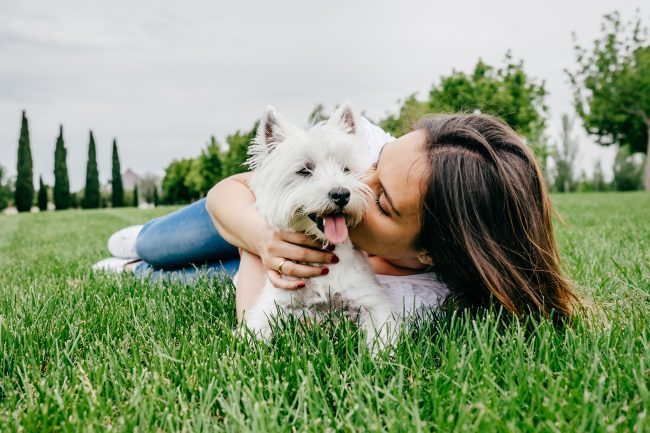If you had to pick between another person and a dog, which would you choose? Well, according to a research study, that decision has already been made: the dog.
Sociologists and anthropologists from the University of Colorado Boulder and Northeastern University have found that when it comes to empathy, mankind would pick pooches over other people. This is mostly seen when disaster strikes. We're more likely to have higher response levels when it affects dogs rather than other humans. In the experiment, 240 students were given fake newspaper clippings of a police report. It either reported about a baseball-bat attack on a puppy, an adult dog, a one-year-old infant, and a 30-year-old adult. Participants were then asked questions in order to determine their level of empathy towards each scenario. The adult came in last place for sympathy. "Respondents were significantly less distressed when adult humans were victimized, in comparison with human babies, puppies, and adult dogs," according to the researchers. "Only relative to the infant victim did the adult dog receive lower scores of empathy." But why is this? Why do we find ourselves more inclined to help our four-legged friends than our two-legged friends? The answer is actually quite simple: humans see dogs as members of the family, as our fur babies. Which makes sense seeing as dogs and babies are vulnerable, innocent beings and we find ourselves wanting to help them more than grown adults, who would be more capable of handling things themselves. Plus, babies and dogs can't speak up for themselves, so who else would be their advocate?
But just because they can't talk, doesn't mean they can't communicate. A UK medical research study published in the journal Scientific Reports found that a dog's facial expressions say a lot more than we think. According to the study, dogs make more facial movements when people pay attention to them.
In order to test the theory, they used a video camera to record 24 dogs' facial expressions during different circumstances -- when there was either a human facing them or facing away, and with or without a treat. Apparently, the treats had little to no impact on the dogs' expressions.
"[The research] tells us that their facial expressions are probably responsive to humans -- not just to other dogs," Bridget Waller, professor of evolutionary psychology at the University of Portsmouth, told The Guardian.
What do you think? If you were given the same test as the students, which one would you choose: the dog or the human, and why? Share your choices with us in the comments below, and let's get the conversation started.
